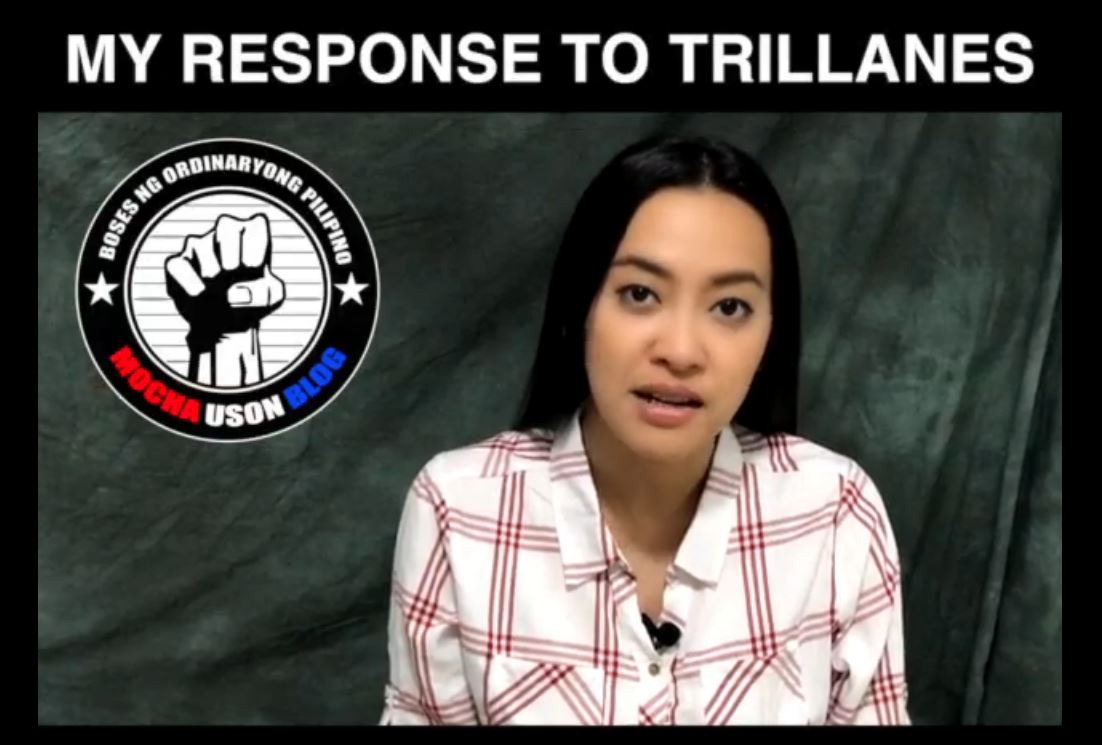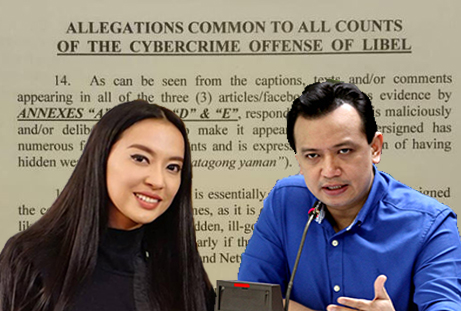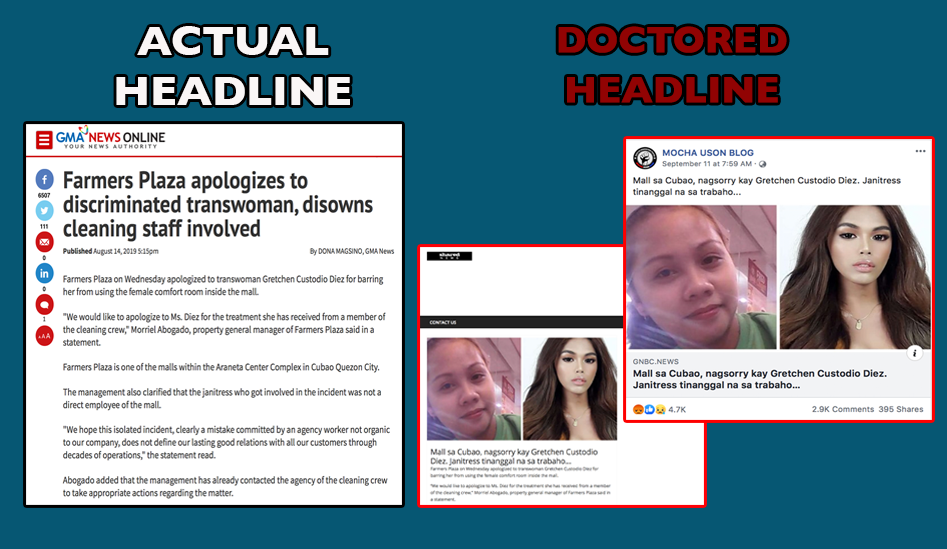The word “alleged,” contrary to a statement by Communications Assistant Secretary Margaux Uson, is not a defense against libel.
STATEMENT
Uson, threatened with a libel case by Sen. Antonio Trillanes IV, who accused her of spreading fake news about his supposed offshore accounts, responded Sept. 12 through a Facebook video.
She said:
“Sasampahan daw po ako ng kaso ni Sen. Trillanes dahil sa pag-share ko sa Facebook ng kanyang bank accounts. Unang-una, paki-Google po ang ibig sabihin ng ‘alleged’ or ‘allegedly’ dahil mahilig naman kayo mag-Google Mr. Senator Trillanes (Sen. Trillanes said he will file a libel case against me because I shared his bank accounts on Facebook. First of all, please Google search what ‘alleged’ or ‘allegedly’ means, since you like to Google, Mr. Senator Trillanes).”
Source: MOCHA USON BLOG, Sept. 12, 2017
FACT
In general, the literal truth or falsity of a libelous statement is immaterial in libel cases.
The courts only consider the overall effect of the statement in question, or what has been described as its “sting,” and disregards “subtle or ingenious” explanations provided by the person accused of libel.
The Supreme Court, in a 2009 decision, quoting a 1918 case, said:
“The published matter alleged to be libelous must be construed as a whole. In applying these rules to the language of an alleged libel, the court will disregard any subtle or ingenious explanation offered by the publisher on being called to account. The whole question being the effect the publication had upon the minds of the readers, and they not having been assisted by the offered explanation in reading the article, it comes too late to have the effect of removing the sting, if any there be, from the word used in the publication.”
The question in libel cases is not what writers mean, but what their words mean to an ordinary reader, noted the Supreme Court in the same ruling:
“Words calculated to induce suspicion are sometimes more effective to destroy reputation than false charges directly made. Ironical and metaphorical language is a favored vehicle for slander.”
“The word ‘alleged’ is no talisman to counter libel charges,” explained lawyer Marlon Anthony Tonson of the Philippine Internet Freedom Alliance.
“The courts will only take into consideration the context of how these words are used, and always in reference to the entire news report or published statement,” he said.
The Reuters Handbook of Journalism cautions journalists against the use of the word “alleged” before a defamatory statement, saying it does not provide immunity from libel.
Libel, a crime under the Revised Penal Code, is defined as:
“a public and malicious imputation of a crime, or of a vice or defect, real or imaginary, or any act, omission, condition, status, or circumstance tending to cause the dishonor, discredit, or contempt of a natural or juridical person, or to blacken the memory of one who is dead.”
Source: The Revised Penal Code
All four elements of libel mentioned in the law – defamation, malice, publication and identifiability of the person defamed – must be satisfied for the crime to be proven in court.
Punishment ranges from a fine of P40,000 to P1.2 million, or jail time of six months to four years and two months, or both, as well as civil action.
The enactment of the Cybercrime Prevention Act of 2012 expanded libel to include publications made online.
The provision in the cybercrime law imposing a stiffer penalty for online libel has been ruled constitutional by the Supreme Court in 2014.
Sources:
G.R. No. 203335. Disini v. Secretary of Justice
G.R. No. 184315. Yuchengco v. The Manila Chronicle
Cruz, R. C. (2002). The Revised Penal Code with Related Laws, Fourth Edition. Quezon City: UP Law Complex.
Cybercrime Prevention Act of 2012
Reuters Handbook of Journalism
GMA News Online. Trillanes to file libel charges vs. Mocha, 2 others over ‘fake news’
Rappler. Trillanes to sue Mocha Uson, Erwin Tulfo for libel
Philstar. ‘Era of fake news over’: Trillanes to sue Tulfo, Mocha for libel
(Guided by the code of principles of the International Fact-Checking Network at Poynter, VERA Files tracks the false claims, flip-flops, misleading statements of public officials and figures, and debunks them with factual evidence. Find out more about this initiative.)




